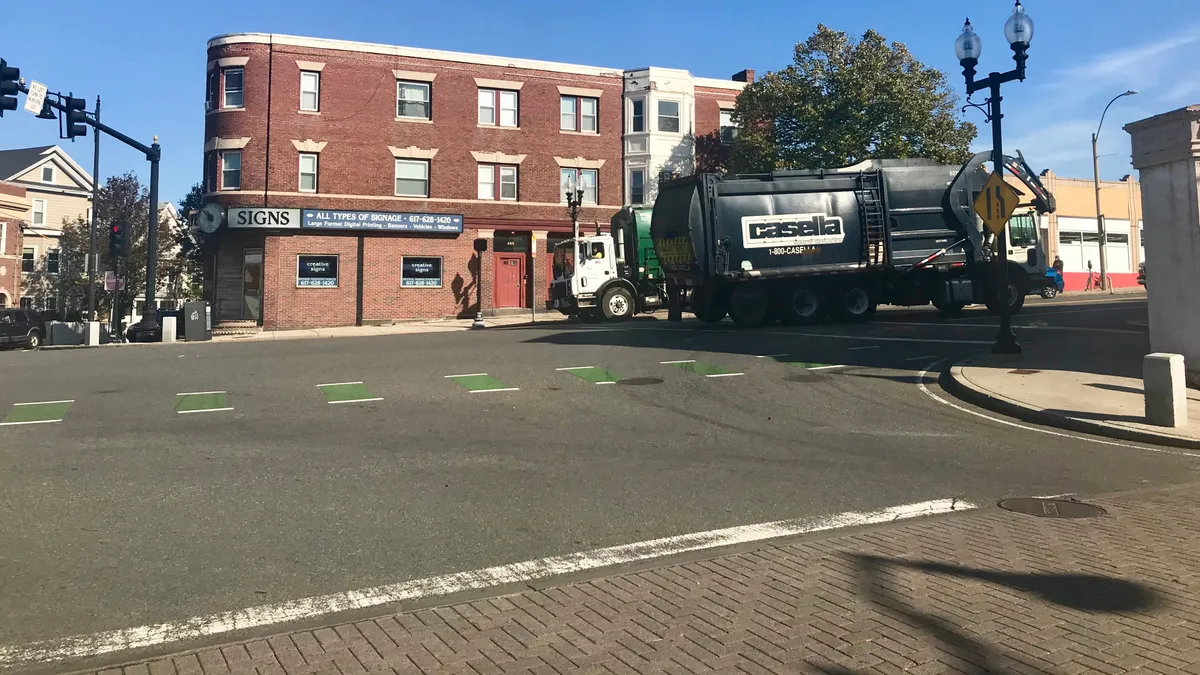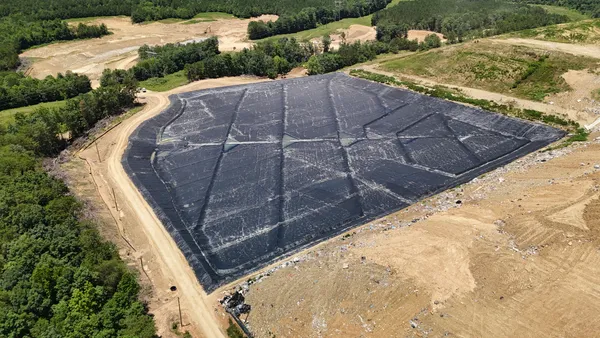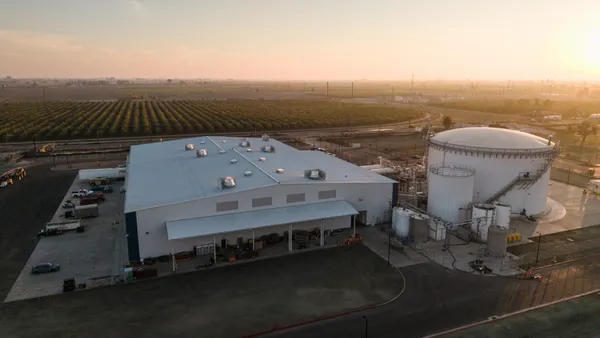Q2 Earnings
| Revenue | $215.9M |
| Year-Over-Year Change | 14.4%▲ |
| Net Income | $11.8M |
Dive Brief:
- Casella Waste Systems has completed five acquisitions worth $67 million in annualized revenue this year to date, following the July purchase of Willimantic Waste Paper. During the company's second quarter earnings call on Friday, Chief Financial Officer Ned Coletta said the purchase represents a "terrific platform" for possible future expansion in eastern Connecticut.
- CEO John Casella said acquisition of the waste collection, transfer and recycling business includes important rail access, which could line up well with ongoing plans to open the McKean Landfill in Pennsylvania. The McKean site could be up and running by the end of 2022 or early 2023, he said during the call.
- Casella raised its fiscal 2021 guidance ranges for the second time this year, which Coletta attributed partly to expected contributions from completed acquisitions in 2020 and 2021, including Willimantic. Updated revenue guidance is between $850 million and $860 million, compared with the Q1 guidance of $815 million to $830 million.
Dive Insight:
News of the Willimantic acquisition teed off discussion about the company's near-term plans for regional expansion and beyond. The company has had “productive conversations” with other potential sellers, and “we’re working on several opportunities that could go over the balance of 2021 or into next year,” Casella said, adding that labor challenges and possible tax changes could accelerate the pipeline. The company is working on between $80 million and $100 million in acquisitions this year, he said.
Willimantic serves about 30,000 customers in eastern Connecticut and has annualized revenues of about $62 million, according to a news release announcing the acquisition. The deal represents a return to Connecticut for Casella, which previously had a presence in the state before divesting certain FCR recycling assets in 2011.
Willimantic’s rail access is an important feature to help feed the planned McKean landfill. In 2014, Casella received a state grant to build a rail siding and transfer station for McKean for greater access to waste in the region. Casella also sees the upcoming closure of the Materials Innovation and Recycling Authority refuse-derived fuel facility in Connecticut as another factor that could put pressure on the regional disposal market, company leaders said in their Q1 call.
The Willimantic sale is "very helpful because it puts more tons in our control to make sure that we’ve got the tonnage necessary to get a nice return at McKean when we bring it up and make it operational," Casella said. The company plans initially to move C&D waste to the McKean site, then build in MSW capacity, he said.
Many of Casella's capital expenditures this year were for items they ordered back in 2020, when they were able to lock in pricing, Coletta said. However, "we have experienced recent inflationary pressures on dumpster purchases, as steel prices have skyrocketed, and for certain construction materials at our landfills," he added. Larger competitors also cited similar supply chain factors in recent earnings calls.
Solid waste volumes that took a hit during the pandemic continue to rebound as more businesses recover from pandemic-related closures or service suspensions.
Overall solid waste volumes were up 7.1% in the second quarter compared with that period in 2020, an improvement over the first quarter, when volumes were down 3.3% year over year. Overall collections were slightly up, by about 6.7%, and commercial collection increased around 12% for the quarter compared with 2020.
As of late July, Casella has recovered 85% of those customers on a revenue basis. Coletta predicted that the company would never be able to recover the full 100% of commercial service lost during the pandemic, in part because some businesses have closed and tourism and restaurant activity has been slower to return to the Northeast than in some other parts of the country.
Landfill tons were up 11.2% year over year, but Coletta said the company was still down 5% on a trailing 12-month basis compared with pre-COVID landfill tonnage levels, mainly due to lower commercial activity in the greater New York City area.
Driver shortages at third-party trucking companies that typically move the waste from the city to Casella landfills have also affected tonnage, he said.
The company faced significant labor issues in 2019 and 2020 before the pandemic, but Casella says it has since enjoyed relatively good driver retention and hiring rates due to strong recruitment efforts and the company’s CDL school, which attracts new drivers out of high school. Other major companies reported in recent earnings calls that their hiring issues have persisted throughout the pandemic.
“We have been increasing labor rates, and we have some places where we have open slots, but it's not a crisis for us,” Coletta said.















